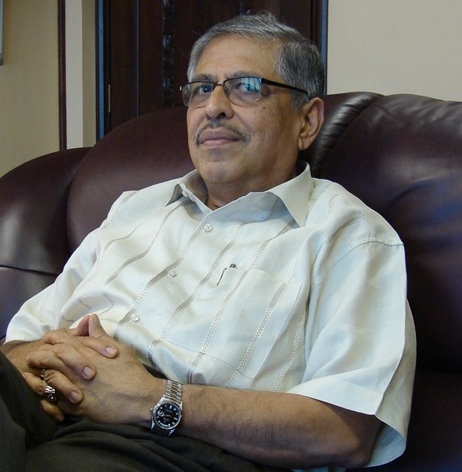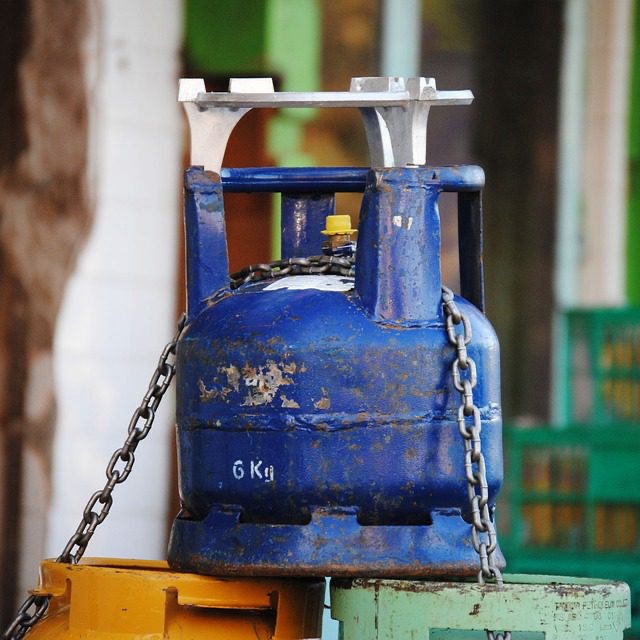A local firm contracted by the government in the lackluster cheap gas scheme is headed to the grave.
The administrator of of Allied East Africa Limited (under administration) has offered the assets of the company for sale.
“Interested parties may visit the premises to inspect the assets with prior appointment or seek any information by writing to the Administrator,” the company’s administrator Panangipalli Rao said in a public notice on Thursday.
Interested bidders for the company’s assets are expected to furnish the Tact Consultancy Administrator with their bids by September 15.
Allied East Africa has been in administration since November of 2018 after falling into financial turmoil.
Allied East Africa was already broke by the time it won the tender in late 2016. On July 15, 2016 a few months before it won the tender, the High Court found Allied East Africa in default of a Sh135 million debt they owed to First Community Bank, a situation that led to its subsidiary Midland Energy being put under administration two years later.
It is not clear how a company unable to pay a debt of Sh135 million convinced the government that it could manufacture and supply gas cylinders worth Sh300 million.
In its grand Project Mwananchi, the government was to buy five million gas cylinders by the end of 2019, fill them with gas and distribute them to the low and middle-income households at a reduced cost of Ksh2,000 ($20). The fee covers cylinder, burner, grill and gas.
The programme, launched in October 2016, was meant to subsidise the cost of cooking fuel for the poor especially in the rural areas in the next three years, and contain the destruction of forests through reduction or elimination of the use of harmful sources of energy such as charcoal, firewood and kerosene.
How Mohamed Jaffer Greedy Schemes To Monopolize LPG Killed Cheap Gas For The Poor Project
When Government announced a subsidized gas project in October 2016, it brought a ray of hope for Kenyans who often relied on firewood and kerosene, two energy sources that are not only inefficient but had them breathing in toxic fumes.
Mwananchi Gas project was to sell under the Gas Yetu brand and was meant to safeguard the poor from respiratory diseases caused by the use of firewood for cooking. It was also meant to contain the rampant destruction of forests.
In 2017 Gas Yetu was allocated Ksh2.2 billion for the period 2017-2019. A further Ksh700 million was allocated through a supplementary budget raising the total cost of the project to Ksh2.9 billion.
The project would have seen millions of households receive subsidized 6kg cooking gas cylinders at a cost of Ksh2,000.
5 million households were targeted with the Gas Yetu cylinders fitted with burners and grills.
The beneficiaries would refill them at a cost of only Ksh840 per cylinder.

This was however not to be. 2 years since it was launched Energy and Mining Principal Secretary Eng. Joseph Njoroge says the government shelved it due to budget issues.

However, an investigation into what led to the collapse of the project reveals a well-calculated plan by Pro Gas owner Mohammed Jaffer to kill Gas Yetu.
It all started with a contract awarded by the Petroleum Ministry and the National Oil Corporation of Kenya (Nock) to a consortium led by Allied East Africa Ltd.
Having gotten the tender, but with no capacity to deliver, the consortium turned to Mohammed Jaffer owner of Africa Gas and Oil (AGOL) which also owns Proto Energy Limited under which Pro Gas is sold.
The company was then just beginning and was virtually unknown in the country.
Jaffer had however managed to obtain a lease for use of a cylinder pressing machine from KPA in a shady deal that seems to have been orchestrated by officials from the Energy Ministry.
The fraudulent suppliers, in the first batch, delivered faulty cylinders raising questions about quality assurance and monitoring of the manufacturing process.
A total of 67,251 cylinders were found to be leaking posing a serious safety hazard had they gone into circulation.
This, however, seemed to be part of the grand plan to kill the project as then PS Andrew Kamau canceled the tender purchase order of 357,000 cylinders despite money having been paid out to East Africa Allied and Mohammed Jaffer.
The PS also canceled another purchase order of 700,000 cylinders with little explanation as to how the total budgetary allocation that had risen to Ksh2.9 billion had been spent.
This necessitated Consumers Federation of Kenya (COFEK) to sue Government in October 2018.
COFEK told court the Government’s ambitious program to buy and supply 5 million subsidized gas cylinders to low- and middle-income households by end of 2019 were in jeopardy as 60% of the cylinders delivered were faulty.
As Kenyans continued wondering why the Gas Yetu project is not taking off despite the immense benefits it would have afforded them, a new player in the market was beginning to emerge.
With its bright pink colored cylinders, Jaffer’s Pro Gas was starting to penetrate into the market offering gas cylinders at cheaper rates than competitors.
Pro Gas with the help of Energy CS Charles Keter, PS Njoroge and other corrupt government officials at the Energy and Petroleum Regulatory Authority (EPRA) and Kenya Revenue Authority (KRA) continue to engage in illegal and unfair trade practices to gain an edge over competitors.
Through use of intimidation tactics and sabotage, Pro Gas has been hiring thieves in hoods to steal cylinders from competitors resulting in millions of shillings in losses.
On June 20, 2019 at Southernsun, Mayfair Hotel in Nairobi, members of the LPG Cylinder Exchange Pool lamented the unfair practices by Pro Gas. Minutes of the meeting also indicate that members voted for pricing formulas with majority preferring cylinder cost minus validation cost to remain competitive.

However, EPRA went against the norm and published new rates. In a public notice issued July 25, 2019, EPRA announced a new deposit rate of Ksh2,170.03 for the 6kg cylinder and Ksh 3,588.86 for the 13kg cylinder.
These rates according to members of the exchange pool are in bad faith and are bound to resort in massive losses.
Despite numerous complaints to EPRA, no action is taken against Pro Gas.
Exchange Pool members now say they have evidence that PS Njoroge has been receiving Ksh30 million monthly in bribes while other officials at EPRA led by the Director-General Robert Oimeke pocket not less than Ksh10 million each month.
This is also the case at KRA with senior officials receiving millions of shillings monthly to turn a blind eye to Jaffer’s indiscretions.
The tycoon has also pocketed a significant number of MPs ensuring that any parliamentary committee investigations go his way.
To date, there have been more than five investigations on the unfair monopoly by his companies including Grain Bulk Handling Limited (GBHL) but no action has been taken.
Through bribery, Jaffer has now completely taken over the imports, distribution and retail business in the LPG sector undercutting other companies and driving them out of business altogether.
Suits filed in Court against Pro Gas, Energy Ministry and EPRA are often thrown out as he bribes witnesses and threatens anyone who comes in his way.
Photos taken at the main Pro Gas yard in Kabati shows they have been stockpiling the stolen cylinders there from where they are washed, repainted and rebranded into the signature bright pink color. They are then refilled and distributed to Kenyans at very low prices dealing a huge blow to competitors.
In October 2018, at the height of the Gas Yetu scandal, DCI George Kinoti said he will begin investigations into the loss of billions.
“We will initiate a probe. We cannot allow a program that is funded by taxpayers to put Kenyan citizens at risk,” said Mr Kinoti.
Over one year later though, no investigations have been done and no one has been taken to court over the scam raising questions about how many agencies are on the take from Mohammed Jaffer.
This as 80% of Kenyans who use firewood and kerosene continue to suffer at the hands of cartels at the Energy Ministry.
Monopolistic grip
Despite implementing fiscal policies, subsiding cylinders and going to the extent of launching a cooking gas programme to make gas affordable to the common man, industry players contend that ceding the bulk importation of LPG to Africa Gas and Oil Ltd has denied the country the benefits of cheap cooking gas.
To date, Africa Gas, which is partly controlled by Jaffer who is also the owner of Grain Bulk Handlers, imports 90 per cent of the LPG consumed in Kenya and also controls a significant transit market to neighbouring countries.
The remaining 10 per cent is brought to the country by smaller shipments that discharged into oil marketing companies terminals located at both the Shimanzi Oil Terminal and at Mbaraki Jetty.
“Africa Gas Ltd has a monopolistic grip on the LPG market because it owns bulk import and storage facilities. This has denied Kenyans the benefits of cheap cooking gas,” said an industry player on condition of anonymity.
The fact that Kenyans are not significantly benefiting in terms of cooking gas retail prices is evident considering that despite a significant decline in prices at the international market, locally the prices have remained largely unchanged.
In the latest update in his expansion, Proto Energy which is associated with Jaffer snapped up a rival cooking gas company for an undisclosed sum in the latest dealers’ race for a larger market share of the liquefied petroleum gas (LPG) sector.
Proto Energy, is the maker of Pro Gas and has now received regulatory approval to buy out Solutions East Africa, whose LPG products trade as SeaGas.
The buyout is expected to see the Mombasa business mogul firm its grip in the lucrative cooking gas market.
With Jaffer now controlling over 70 pc of the gas market in Kenya, the monopolistic grip is tight, the dangers unseen. This a possible matter of national security.
That a private company controls bulk importation has made it impossible for Kenya to introduce price controls on cooking gas similar to those introduced on diesel, petrol and kerosene costs in 2010. That a private firm is at a position where it can manipulate the market and cause an artificial shortage of gas.
As Kenyans gear towards elections, selfish leaders become the target of selfish businessmen like Jaffer who’ll finance their campaigns to guarantee their business survival. This has been the text book tactic used by Jaffer. Last elections he financed jubilee, he then worked with Ruto before their fallout with Uhuru and now again he’s getting his feet back to Raila. But all at the expense of the poor.
There's no story that cannot be told. We cover the stories that others don't want to be told, we bring you all the news you need. If you have tips, exposes or any story you need to be told bluntly and all queries write to us [email protected] also find us on Telegram

